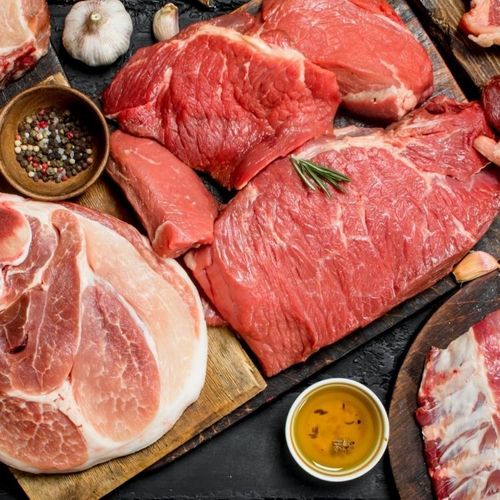Years of eating a lot of red meat and Y processed meats, such as salami and I pastrami, can increase the risk of colon cancer, researchers report.
The Study
The 20-year study of more than 148,000 adults between the ages of 50 and 74 defined high consumption of red meat as at least three ounces every day for men, and two ounces daily for women.
High consumption of processed meat was defined as five or six days per week for men, and two or three days per week for women.
The research showed that the risk for colon cancer was 50% greater for the people who had a high consumption of red and processed meat compared with those who ate it no more than three times a week.
Long-term consumption of poultry and fish was associated with a lower risk of colon cancer.
This is not a groundbreaking finding, according to Dr. Michael J. Thun, head of demiological research at the American Cancer Society (ACS). "There have been 20 such studies looking at the relationship between consumption of red or processed meat and colorectal cancer, and most have shown a greater risk in people with higher consumption," he notes. "But this is the largest study that I'm aware of so far, and it adds substantially to the available evidence."
Implications For ATKINS Dieters
Also, Thun says the results of this study should be especially interesting to people who are following the Atkins diet. "The Atkins diet became popular just recently, so no one knows the health effects long-term," he says. "But the accumulating evidence that a diet high in red meat or processed meat increases the risk of colon cancer indicates that it would certainly be undesirable to remain on the Atkins diet long-term."
Thun adds, "I haven't eaten red meat for quite a while."
"Moderating red meat intake makes sense in terms of reducing the risk of colon cancer," says Dr. Steven H. Zeisel, professor of nutrition at the American Institute of Cancer Research at the University of North Carolina, Chapel Hill. But because the study findings could be supported by a controlled trial that would follow up people assigned to different diets for years, he isn't ready to forego red meat altogether. "I don't think that anybody says that eating red meat now and then would increase the risk of cancer. There's no need to become a vegan or make drastic changes in [your] diet. I would be moderating my intake a little more than I would have moderated [it] before."
Other Risk Factors Play Larger Role
While Thun says, "High meat consumption is associated with, at most, a 50% increased risk for cancer of the lower colon," he adds that "obesity doubles the risk for all colorectal cancer, as does lack of physical activity."
To reduce colon cancer risk, the ACS recommends people maintain a healthy body weight, get regular physical activity, and have regular screenings, including an annual fecal occult blood test (FOBT), a colonoscopy every 10 years and a flexible sigmoidoscopy every five years for people older than age 50.
